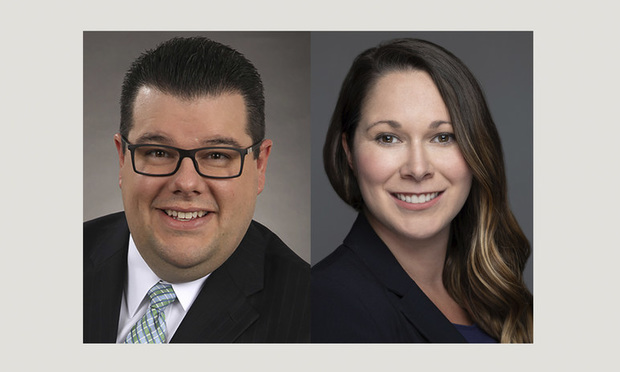On Oct. 8, the U.S. Supreme Court heard oral argument on three cases addressing the scope of sex discrimination protections under Title VII of the Civil Rights Act of 1964 Section 7, 42 U.S.C. Section 2000e-2 (1964). Title VII makes it an unlawful practice for an employer to “fail or refuse to hire or to discharge any individual, or otherwise to discriminate against any individual with respect to his … sex,” or “to limit, segregate, or classify his employees or applicants for employment in any way which would deprive or tend to deprive any individual of employment opportunities or otherwise adversely affect his status as an employee, because of such individual’s … sex.”
Two consolidated cases, Altitude Express v. Zarda, 883 F.3d 100 (2d. Cir. 2018), cert. granted, 139 S. Ct. 1599, 203 L. Ed. 2d 754 (U.S. Apr. 22, 2019) (No. 17-1623) and Bostock v. Clayton County Board of Commissioners, 723 Fed. Appx. 964 (11th cir. 2018), cert. granted, 139 S. Ct. 1599, 203 L. Ed. 2d 754 (U.S. Apr. 22, 2019) (No. 17-1618), address whether discrimination on the basis of sexual orientation is a form of discrimination “because of … sex.” A third case, R.G. & G.R. Harris Funeral Homes v. Equal Employment Opportunity Commission, 884 F.3d 560 (6th Cir. 2018) cert. granted in part, 139 S. Ct. 1599, 203 L. ED. 2d 754 (U.S. Apr. 22, 2019) (No. 18-107), addresses discrimination on the basis of gender identity and transgender status.


 Stephen L. Korbel, left, and Anna Z. Skipper, right, of Babst Calland Clements & Zomnir.
Stephen L. Korbel, left, and Anna Z. Skipper, right, of Babst Calland Clements & Zomnir.




